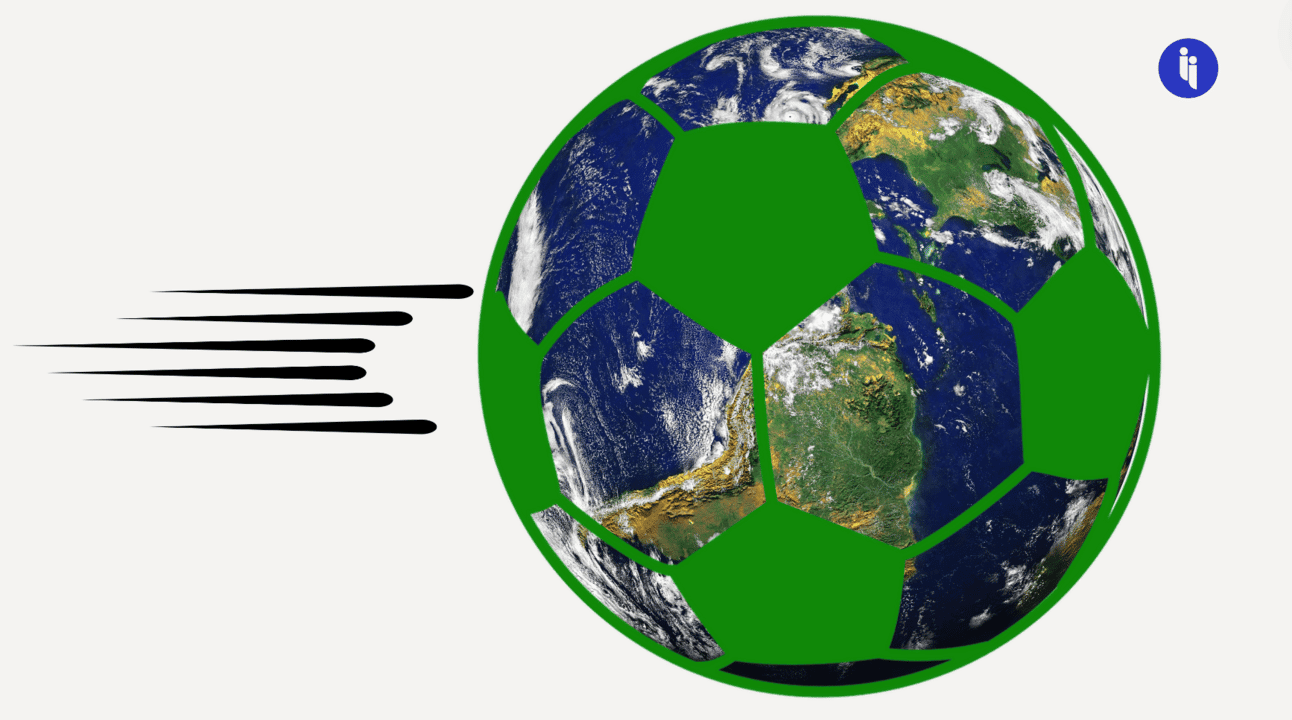With Europe’s UEFA men’s football (sorry, ‘soccer’) championship final happening this Sunday, what better time to have a look at the geopolitics of it all?
Let’s dig in.
‘The Euros’ is the top tournament for Europe’s national football teams and it’s a big deal. It’s the second-most watched football championship in the world after the FIFA World Cup, and the 2020 edition (which was confusingly held in 2021 due to Covid) had a cumulative audience of over 5 billion worldwide.
Stay on top of your world from inside your inbox.
Subscribe for free today and receive way much more insights.
Trusted by 151,000+ subscribers
No spam. No noise. Unsubscribe any time.
The first Euros kicked off back in 1960, and immediately hit turbulence:
- That very year, Spanish dictator General Francisco Franco banned his team from travelling to Moscow to play against the Soviets
- Franco’s Spain then hosted the next edition, but got boycotted by others like West Germany, and this sort of thing has just kept happening
- Eg, UN sanctions prevented the Yugoslav team from playing in 1992, as the state splintered into several entities and descended into war.
Of course, 2024 has been no exception, so here are four moments where geopolitics crushed too many beers and streaked across the Euro pitch:
- An 🇦🇱 Albanian striker got banned after leading ‘nationalist’ chants
When his team drew against Croatia, Mirlind Daku celebrated by pulling out a megaphone and leading fans in some provocative chants against Serbia and North Macedonia (reflecting long-running ethnic tensions and periodic armed conflict in the region).
Daku later apologised, but it might all explain why the dude only got five minutes of game-time the whole series, and why Albania returned home without a medal though as UEFA’s most-fined nation. And speaking of fines…
- 🇷🇸 Serbia copped a $10k fine after fans waved ‘provocative’ flags
Serbia doesn’t recognise Kosovo’s 2008 declaration of independence, and their border skirmishes have repeatedly threatened to escalate. That’s why it was more than a little edgy when Serbian fans brandished flags showing Kosovo within its borders, plus a ‘never surrender’ slogan.
Separately, a Kosovar reporter got banned for responding to Serbian fans with an ‘eagle’ hand gesture reflecting Albania’s flag (most Kosovars are ethnic Albanians). And speaking of hand gestures…
- A 🇹🇷 Turkish centre-back got banned for an ‘extremist’ hand gesture
After scoring his second goal against Austria, Merih Demiral did a ‘wolf’ hand gesture that’s actually banned in Austria for its close links to the Grey Wolves, an ultra-nationalist Turkish group outlawed in France and elsewhere.
Demiral’s handiwork also irritated Germany’s interior minister, who insisted “the symbols of Turkish right-wing extremists have no place in our stadiums”. But others argue it’s a historical (rather than political) symbol, and Turkey’s president defended Demiral, insisting the guy was just “showing his excitement”.
Interestingly, the incident happened just as a trial kicked off in Turkey over the 2022 murder of the former Grey Wolves leader, Sinan Ates. Meanwhile…
- 🇷🇺 Russia is banned, but 🇧🇾 Belarus (its ally) isn’t
Putin’s decision to invade his neighbour has not only got half a million of his own soldiers wiped out, plus international warrants for his own arrest, but also bans on Russia participating in all kinds of tournaments (including this UEFA one).
Host country Germany tried to get Belarus banned too, because Belarus has allowed Russia to invade from Belarusian territory. But UEFA ultimately declined. Instead, it ruled that Belarus and Ukraine couldn’t play in the same group.
And all of the above is before we even look at the governing body itself: UEFA.
Headquartered in Switzerland, UEFA runs football, futsal, and beach football (lol) in Europe plus Turkey, Azerbaijan, Armenia, Georgia, Kazakhstan, and Israel. It earns waterfalls of cash by selling broadcasting, advertising, and tickets.
And yes, when you mix that geography, history, and cashflow, you obviously get intrigue, particularly around who gets to join, and who gets to host.
UEFA’s last big expansion took effect in 2016, growing the tournament from 16 to 24 teams – interestingly, some of the biggest members (like Germany and England) opposed it, purportedly on the grounds that it’d dilute the quality.
And there’ve been various hosting scandals over the years, like when a Cypriot official accused UEFA committee members of accepting $12M in bribes to support the joint Ukraine-Poland hosting bid for the 2012 tournament. Authorities later closed the case due to a lack of evidence.
Anyway, don’t let us stop you from enjoying the final. It’s this Sunday (local time) at Berlin’s historic Olympiastadion, featuring England against Spain.
INTRIGUE’S TAKE
There’s really no better place where you can learn about the wide variety of offensive hand gestures and chants than a football stadium.
That aside, this tournament has actually been relatively smooth and even delivered some harmless geopolitical lulz, like rival fans poking fun at one another using their beloved national foods.
It’s mostly all now a benign space to indulge in old grudges without resorting to the old methods. But yes, beyond the stadium, old methods (war) are now back in vogue again, and that’s going to play out in sports.
For now, the main flashpoints will remain around the peripheral symbols: gestures, songs, flags, and who’s allowed to play. That’s because each of these things, and the decisions around them, reflect deeper questions around what we accept as normal. And deep down, that’s arguably what we fight about.
Also worth noting:
- The next two tournaments in 2028 and 2032 will be held in the UK and Ireland, and Italy and Turkey respectively.
- Current UEFA President Aleksander Ceferin has been accused of making key appointments on the basis of loyalty rather than ability.
- The parallel Copa America men’s tournament is older (founded in 1916) and smaller (16 teams). Its final is also this Sunday, with Argentina facing Colombia in Florida’s Miami Gardens.




